We welcome Shelley Emling to give us an inside look at A Forgotten Hero: Folke Bernadotte, the Swedish Humanitarian Who Rescued 30,000 People from the Nazis. Shelley Emling is a native Texan, UT graduate, and former reporter for UPI, London correspondent for Cox Newspapers, having also spent a stint covering Central America. She’s currently a senior editor at AARP.
Her previous books are The Fossil Hunter: Dinosaurs, Evolution, and the Woman Whose Discoveries Changed the World, and, Setting the World on Fire: The Brief, Astonishing Life of St. Catherine of Siena
; as well as Marie Curie and Her Daughters: The Private Lives of Science’s First Family
.
THE HISTORY AUTHOR SHOW: Shelley, while you’ve worked in a lot of places around the globe, I don’t see an obvious spot on your journey where you’d have come across the fascinating story of Folke Bernadotte. How did you find the man who is — as the title of your book says — A Forgotten Hero? 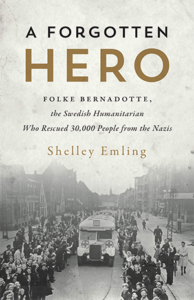
Shelley Emling: It was actually my literary agent, Agnes Birnbaum, who had read a magazine article about Folke Bernadotte and mentioned him to me as a possible subject. Previously I had only written about strong, interesting women so I thought this might make a nice change. When I was able to reach his two sons, still living in Sweden, I was convinced I should write this story.
THAS: You begin A Forgotten Heroes by introducing us to a young Polish woman, Manya Moszkowicz, as the Soviets and Germans invade her country from both sides. You then relate an anecdote about a drunken Nazi officer demanding her father’s flowerboxes for his windows. It’s such a surreal and terrifying moment, I wondered why you chose it to set the stage.
Shelley Emling: I heard Manya (Friedman) Moszkowicz discuss her ordeal in a podcast at the U.S. Holocaust Memorial Museum in Washington, D.C. To me, she was someone everyone could relate to. She was a young girl with two brothers and extended family all around her. Her dad worked in a furniture shop. Life seemed pretty carefree — until it didn’t. The young woman’s life turned upside down in an instant. I wanted to show just how quickly things can go from good to bad to worse.
THAS: Sweden has a good reputation in North America, and if people know anything at all about their role in World War 2, it’s one of neutrality. That’s always bothered me because it’s just not that black and white. In fact, as you write in A Forgotten Hero, “Sweden’s supposed neutrality in fact leaned in Germany’s favor.” Set the stage for your book. What is Sweden’s posture towards Hitler and how does that impact Folke Bernadotte’s challenge?
Shelley Emling: Hindsight, of course, is 20/20. At the time, though, Sweden had a lot to consider. Its iron ore trade, for example, was important for the economy but Germany used this ore to produce weapons. Sweden, meanwhile, relied on German coal. The government allowed the trade to continue because of its official policy of neutrality. Sweden also allowed German troops to be transported through Sweden to the Russian front in the early days of Operation Barbarossa. There is no doubt that Sweden’s neutrality was an imperfect policy. But at the time little mattered more than survival. Many factors defined policy including geography, historical ties and economic interests. Folke Bernadotte used German sympathies towards Sweden to his advantage. He told the Nazis that helping him rescue Scandinavian prisoners was one way Germany could secure its bond with Sweden.
THAS: What was Sweden’s policy for Jews seeking safe haven during the Holocaust?
Shelley Emling: Denmark is often held up, and rightly so, for saving nearly all its Jews. Ordinary Danes were heroic in that they helped Danish Jews who had gone into hiding escape. And they helped them escape to neutral Sweden. While Sweden did do its part to help the German war machine, it also took in thousands of Jews in the 1930s and also many Jews from both Norway and Denmark in the 1940s. Before Folke Bernadotte’s rescue mission, the Swedish diplomat Raoul Wallenberg also saved thousands of Hungarian Jews in Budapest. As the extent of what the Nazis were doing became more widely known, Sweden did indeed provide a safe haven to countless Jews.
THAS: Folke Bernadotte is a count, a man of royal title, and not someone you’d expect to leave behind his comforts to challenge the Nazis. If you were describing him to a friend as someone you’d like them to meet, how would you go about it?
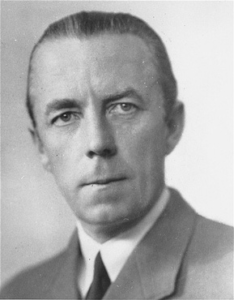 Shelley Emling: Folke Bernadotte grew up surrounded by the trappings of royalty but he wasn’t afraid to get his hands dirty. It’s almost as if he was always trying to prove he was worthy of his royal title. He was smart enough to know that he couldn’t get by without the wise counsel of others. He wasn’t haughty or arrogant but patient and kind and a good listener. And there are few men who were quicker on their feet.
Shelley Emling: Folke Bernadotte grew up surrounded by the trappings of royalty but he wasn’t afraid to get his hands dirty. It’s almost as if he was always trying to prove he was worthy of his royal title. He was smart enough to know that he couldn’t get by without the wise counsel of others. He wasn’t haughty or arrogant but patient and kind and a good listener. And there are few men who were quicker on their feet.
I’ll never forget the story of Folke Bernadotte being in charge of a party for important Swedes at the World’s Fair, before the war. Many failed to RSVP but showed up anyway, meaning there weren’t enough tables or table settings. Folke improvised by standing up and announcing the start of a “picnic.” He was nothing if not a quick thinker and definitely someone you would want on your side.
THAS: November 22, 1943, finds Folke Bernadotte in Berlin, searching for a way to work with the German Red Cross. What’s his strategy for that meeting?
Shelley Emling: Folke Bernadotte wanted to persuade the German Red Cross to repatriate invalid prisoners of war. He also wanted to get the agency’s help in assisting the very poorly treated Russian prisoners of war in Germany, provided that the same could be done for Germans in Russia. The Germans were never going to play along, though, as they considered Soviet prisoners of war as not only much-hated enemies but also as racially inferior. This was all incredibly frustrating for Bernadotte as he took his first steps towards trying to become a real humanitarian of stature.
THAS: In A Forgotten Hero, you recount Folke Bernadotte’s meeting with Supreme Commander Dwight D. Eisenhower. How did the two men get along?
Shelley Emling: They got along well, I believe. I know Eisenhower made a strong impression on Bernadotte. Bernadotte described him as being warm-hearted and generous and also calm and resolute and very sure of himself when it came to obtaining his goals. But I think one thing bothered Bernadotte. Eisenhower shared his plans for victory in Europe with Bernadotte and Bernadotte couldn’t help but notice that they did not include any plans for the prisoners in the German concentration camp.
THAS: On the other side of the war, Folke Bernadotte meets with Heinrich Himmler, and tries to get him to violate Hitler’s orders about the camps. You write in A Forgotten Hero, quote, “As distasteful as it was, Folke found himself in league with a devil.” How did Folke find a way to work with this embodiment of evil?
Shelley Emling: He had no choice. Bernadotte immediately realized that Himmler had an uncanny instinct for self-survival. He took advantage of that to get Himmler to negotiate when it was clear that Germany would lose the war. Oddly enough, Bernadotte found Himmler extremely affable with a good sense of humor. And he had Hitler’s ear.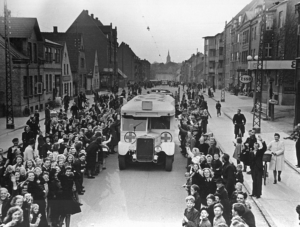
THAS: The cover of A Forgotten Hero shows a picture you have deeper in the book, one of a Swedish Red Cross bus carrying Danish prisoners from German concentration camps. What were the logistics of this challenge for Bernadotte?
Shelley Emling: The challenges were great. Obviously Folke Bernadotte and the volunteers were caught in bombings and heavy strafing many times. Their lives were always at risk. The area in which the buses could travel was forever shrinking, as Germany’s enemies began closing in on them more and more. But I think perhaps one of the greatest challenges also was having to play nice with the Nazis. Nazi officers insisted on being present on the buses. They insisted on being there whenever anyone came inside a concentration camp. Bernadotte and his team members no doubt couldn’t stand this, but they had no choice. They had to be cordial or the whole operation could have fallen apart.
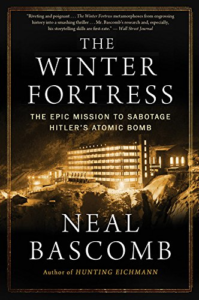 THAS: One reason I like to talk about the Swedish government’s posture in World War 2, is one of my oldest friends is of Norwegian ancestry, and together we’ve visited some of the sites from their brutal occupation by the Nazis that Sweden avoided. (For more, check out my interview with Neal Bascomb, author of, The Winter Fortress: The Epic Mission to Sabotage Hitler’s Atomic Bomb.)
THAS: One reason I like to talk about the Swedish government’s posture in World War 2, is one of my oldest friends is of Norwegian ancestry, and together we’ve visited some of the sites from their brutal occupation by the Nazis that Sweden avoided. (For more, check out my interview with Neal Bascomb, author of, The Winter Fortress: The Epic Mission to Sabotage Hitler’s Atomic Bomb.)
So when I saw the name Odd Nansen in A Forgotten Hero, it leapt out at me, having discussed his diary with Timothy Boyce who edited, From Day to Day: One Man’s Diary of Survival in Nazi Concentration Camps. Describe the impact seeing Nansen imprisoned had on Folke Bernadotte.
Shelley Emling: Bernadotte and Nansen had met in America in the late 1930s and had become pretty good friends. So, I think Bernadotte was absolutely stunned and dismayed to see Nansen imprisoned. And, as Bernadotte wrote, he was horrified to see his friend stand at attention as all prisoners were required to do when a Nazi of any rank entered the room and a Commandant had come in alongside Bernadotte. I’m not sure Bernadotte realized that Nansen had been taken prisoner. Bernadotte wrote that he “boiled with anger” at this example of so-called German discipline.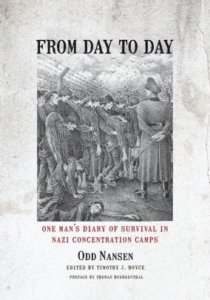
THAS: You interviewed Bertil Bernadotte, Folke’s son, for your book. As a journalist, give us a little insight into how you approach a source who’s going to be protective of his father’s legacy and want to know you’ll handle it fairly.
Shelley Emling: There is not a greater thrill for me than when I am able to meet, face-to-face, with a close family member of the subject of one of my books. Years ago, I met Marie Curie’s granddaughter in Paris and she was kind enough to share letters exchanged between her mother and grandmother. I spent an afternoon with her and I’ll never forget it. I felt the same way when I met both of Folke Bernadotte’s sons, Bertil Bernadotte and Folke Bernadotte Jr.
Obviously they want to see their father portrayed in a good way but after so many years, they also are very curious about the truth. After reading my book, Folke Bernadotte Jr. wrote me to say he learned many things about his father. I think the descendants of historical figures are curious as to what others can find out about them. They want to know the truth. I was careful in recording my conversations with them and made sure to follow up with them frequently during the writing process. It is wonderful to have the support of the family members.
THAS: Folke Bernadotte’s dragon regiment boasted the motto, “Serve only honor,” and he certainly lived up to that. What do you hope your readers will carry with them from his story after they finish A Forgotten Hero.
Shelley Emling: I want readers to realize that even though the world may think it knows all it can know about a subject, such as the Holocaust, there are always those surprises here and there, bits and pieces of the story that haven’t been told. Many people played a heroic and yet quiet part in the World War II drama and their stories must be told and remembered.
THAS: You write in A Forgotten Hero, quote, “Folke emerged from the second World War fairly anonymously — most people were unaware of the scope of the part he played.” That anonymity ultimately plays a role in his murder, which I don’t want to give away here. My question for you is, why has it taken so long for his story to reach a wider audience?
Shelley Emling: I believe it’s because his heroism wasn’t straightforward. There were some who felt he should have done more to help the Jews. Some people thought he favored saving non-Jews. Then in the Middle East, some thought he favored the Palestinians while others thought he favored the Jews. He was walking a What people forget is that he was doing what he did in those final months of World War II, when chaos reigned supreme and no one knew what Hitler might do next. It was Folke who insisted that everyone that could possibly be saved SHOULD be saved. He had to tread a fine line. And it wasn’t easy.
Also of note: Because so many are unaware of his story, Folke Bernadotte’s name does not even appear under “Sweden” in the Holocaust Museum’s exhibit that lists hundreds of non-Jewish people who sheltered Jewish people or helped them escape during the Holocaust. A petition is circulating to have his name added.
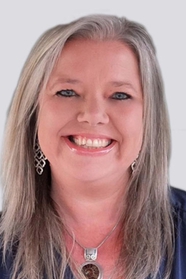 THAS: You close A Forgotten Hero by stating that Holocaust survivors are slowly passing away, and, “It won’t be long before there’s no one left to tell their story. Children will read about the Holocaust in textbooks or on the Internet.” To wrap up our interview, make your pitch to people who care deeply about sharing stories like Folke Bernadotte’s to ensure that “Never again” isn’t just a slogan. Why should they pick up your book, read it, and maybe put it in the hands of a young person?
THAS: You close A Forgotten Hero by stating that Holocaust survivors are slowly passing away, and, “It won’t be long before there’s no one left to tell their story. Children will read about the Holocaust in textbooks or on the Internet.” To wrap up our interview, make your pitch to people who care deeply about sharing stories like Folke Bernadotte’s to ensure that “Never again” isn’t just a slogan. Why should they pick up your book, read it, and maybe put it in the hands of a young person?
Shelley Emling: Because despite the phrase “never forget” being a rallying cry of those who survived the Holocaust for decades, people are forgetting. Or they’re never learning about it. A 2018 widely publicized survey found that 31% of Americans and 41% of Millennials believe that two million or fewer Jews were killed in the Holocaust when the actual number is estimated to be at least six million. Forty-one percent of Americans and 66% of Millennials don’t know what Auschwitz was. And more than half of Americans believe Hitler used force to come to power. Obviously, this is not true.
THAS: It’s a broad failure of remembering that legacy and teaching it. A study by the Azrieli Foundation found similar ignorance in Canada. One-in-five (20%) of young adults have never heard of the Holocaust, and 62% of them didn’t know six million Jews had been murdered. Strikingly, 54% of Canadians overall had no idea. Considering the price paid by Canadian soldiers at places like Juno Beach on D-Day, it’s striking to see Canadian Millennials unable to name a single concentration camp like the one Folke dedicated himself to defeating. And closer to the action, One-in-20 in Great Britain don’t even believe the Holocaust happened.
Shelley Emling: It’s been so many decades now and people are not thinking about the Holocaust or discussing it or learning about it in the way we all once did. There is a real danger of young people thinking that it wasn’t really that big a deal, which is outrageous and alarming. To prevent anything like this from happening again, we need to learn and discuss and remember — with young people.
THAS: After the war, Folke Bernadotte represents the United Nations efforts in the newly reestablished Jewish state. Are his efforts to save these 30,000 people honored in Israel today, or is he forgotten there as well?
Shelley Emling: Some in Israel do recall the White Buses and the rescue effort but others will say he favored the Palestinians when he was a UN mediator in the region. And even Folke would have admitted that he made a misstep when his first peace proposal suggested that Jerusalem be an Arab territory. It’s my guess that his legacy, in Israel, will be mired in controversy for some time to come.
THAS: Shelley Emling, thank you so much for taking the time to question your insights about A Forgotten Hero: Folke Bernadotte, the Swedish Humanitarian Who Rescued 30,000 People from the Nazis. This is an important book about someone who can really inspire us all to do our part when faced with great injustice. I wish you the best of luck in promoting Count Bernadotte’s legacy.
Shelley Emling: Thank you so much. I appreciate your help in spreading the word about the book and also in helping me keep Count Bernadotte’s legacy alive. And thank you for any and all efforts in engaging young people on this topic so that they learn and understand what really happened during World War II.